|
Artificial intelligence and robotics are bringing drastic changes in the technological fields. Things we only imagined twenty years back have now become a reality. From automated systems at a manufacturing plant to self-serving robots in a restaurant, technology has evolved, driving humans together. In Today’s world, AI and robots serve people as problem-solvers, companions, and first-responders. Basically, when you chat online with a business on their website thinking that you are talking to their customer representative, you are actually talking to a chatbot. Technology has evolved for good, and it is not going to stop here. AI and robotics are getting used in multiple fields When we talk about AI and robotics, they are not specific to a certain industry. Their adaptability has made them the favorites in all the industries and sectors you can name or think of. From gaming to defense, healthcare, automotive, fitness, education, retail, manufacturing, and whatnot. So, it is safe to say that machines and computers will positively manage most of our dealings. It is just the start. AI, machine learning, and robotics are bound to progress further in the coming years before they become commonplace. Data has played a crucial role in the development of these systems because data has enabled these machines to learn on their own. With that being said, let’s discuss the applications of AI and robotics and how they are going to shape our future. Where AI and Robots are used Today? AI and robots are a powerful combination for automating tasks. In recent times, artificial intelligence has become a significantly common presence in robotic solutions, bringing in learning capabilities and flexibility in previously rigid applications. While still being nascent, both technologies work well when combined. 1. Virtual Assistant and Chatbots Virtual assistants and chatbots propel the world with astounding automation levels, driving costs down, and productivity. Virtual assistants are a manifestation of AI and machine learning through the simulation of conversation with humans. Virtual assistants and chatbots are designed to obey automated rules using capabilities called Natural Language Processing (NLP). The recent advancements in technology have significantly improved their performance. Majesty AI is the glorified versions of virtual assistants. From answering the basic questions like Today’s date and weather to performing some complex tasks, these virtual assistants will slowly replace your human assistants. The best part is that they amalgamate very well with machines in your home. With the likes of IoT (Internet of Things), you can command your virtual assistant to turn on the light or AC or music in your house further to reduce cost of business operation, staff workload, and energy consumption. 2. Agriculture and Farming Believe it or not, robotics and AI are your next best bet for sustainable agriculture. With the food supply chain facing a crisis, courtesy of centuries of environmental abuse, over-farming, labor shortages, and population growth, it is threatening our most basic needs. AI and automation are believed to provide relief from the effects of an aging agricultural workforce. With the likes of autonomous drones, self-driving agricultural machines, etc., farmers can spend more time focusing on creating sustainable harvests and less time watching the path in front of them. 3. Autonomous Flying Autonomous flying uses computer vision technology for hovering in the air while avoiding obstacles and moving in a straight path. With the introduction of artificial intelligence, these flying machines are getting smarter. From aerial view monitoring to security surveillance, video recording, rescue missions, and more, drones and unmanned aerial vehicles are revolutionizing and replacing many job roles. The application of computer vision in autonomous flying includes obstacle detection, collision avoidance, self-navigation, and object tracking. 4. Retail, Shopping and Fashion The retail sector is reaping the benefits of AI and machine learning for some time now. Artificial intelligence is helping retailers better understand their target market through data analysis. Since data is the new currency of this digital world, it can make or break a business. Keeping this in mind, retailers are using predictive analytics to help forecast customer behavior based on sales data. E-commerce sites are using recommendations based on the customer’s regional search trends, location, and search history. Moreover, shopping sites offer its customers product recommendations based on past sales data. 5. Security and Surveillance The robots developed Today use artificial intelligence, long-range sensors, high-definition cameras, and fast computer processing, all of which makes for a pretty decent security system for different needs. Experts believe that robots can easily guard a designated area. There are robots in the making that uses mapping software for creating a geo-fenced perimeter. 6. Sports Analytics and Activities The sports industry is embracing artificial intelligence and robots to make games more exciting and fairer. Sports are more than just games for millions of people. For some, it is an emotion. Above all, it is a billion-dollar industry. With so much at stake, organizations and associations across the globe are trying their best to gain a competitive advantage and keep the fans happy using robotics technology and artificial intelligence. 7. Manufacturing and Production The evolution of the manufacturing and production industry is seen with the implementation of robotics and AI. The primary reason for the introduction of AI in the manufacturing industry is to cover for the lack of workforce, simplify the whole production process, and improve efficiency. Earlier, it used to take a whole team’s effort to manage one task system. Now since bots have taken over, it has helped manufacturers boost production speed. 8. Gaming Robotics and AI have influenced the way computer games are designed and played. AI is helping game developers to create characters and generate their behavior to imitate humans. The primary goal of artificial intelligence in games is collecting and processing data obtained from players. Above all, it has enabled game developers to create games based on their needs and expectations. Conclusion Artificial intelligence and robotics are the driving force of the future. In the next decade, you will surely see some stunning technological revelations based on AI. AI is all about data, and when properly implemented, it will use the given data to our benefit, automating most of the processes and making our lives easier.
0 Comments
Two fields that are rapidly evolving, advancing and holding infinite promise for the future of humanity are robotics and artificial intelligence (AI). From the simplest of tasks to the most complex and demanding in our everyday lives, advances in robotics and AI have made it possible to create machines that can perform tasks with incredible speed and accuracy.
With these two technologies beginning to converge, is the new age upon us in which robots that are more intelligent and capable than ever before are the future of humans? Machines Among Men Although robotics and AI have always been in the conversation, the last two decades have seen a rapid rise in their development and application. Fear of the misconception that these machines will take over our jobs has been allayed. Instead, robots and AI complement humans, helping us get more done at a faster rate with more accuracy than we can on our own. Advances in AI have allowed us to create computer systems that can learn and adapt over time. IBM, Alexa, Siri, Google Assistant and other similar tools have all become a big part of how we interact with machines and AI in our daily activities. Understanding Robotics And AI Although understanding robotics and AI can be a complex and challenging process, it can also be an exciting opportunity to explore the cutting edge of technology. Robotics and AI are rapidly evolving fields, with new advances every day as these technologies provide an insight into the future of human-computer interaction and automation. Although most people are accustomed to interchanging robotics and AI to mean the same thing, they’re distinct fields. Robotics is an aspect of computer science and engineering in which machines are built and programmed to perform tasks without human interference. AI, however, encompasses systems that emulate the human mind to learn, solve problems and make decisions independently without needing the already programmed instructions. Robotics has been around for hundreds of years. Still, it wasn’t until the mid-20th century that engineers began to design machines that looked and acted like human beings, able to move around in a controlled environment. Today, robotics are found in many industries, including manufacturing, healthcare, space exploration and autonomous vehicles. For AI, having a basic knowledge of AI technologies is essential in understanding how computers are programmed for intelligent behavior using various machine learning techniques such as networks, fuzzy logic and deep learning. Heading Into The Future Even though the future is already upon us with the way technology and innovation are at the heart of everything we do, there are still more ways in which robotics and AI can be applied in the future. Some of the areas include the fields of: Manufacturing: A promising area for robotics and AI is manufacturing, as companies are beginning to use robots in their factories and warehouses to improve efficiency and lower costs. Robots can also be used in areas where human workers might be at risk, such as mining and construction. Meanwhile, AI can play an essential role in designing and producing consumer goods by helping engineers create new products that meet customer needs more effectively. Medicine: As technology continues to intensify, robots are used to assist surgeons in performing delicate and complex procedures and to deliver care to patients in hospitals and long-term care facilities. AI could also improve healthcare by analyzing large amounts of data and identifying patterns that might help researchers and doctors better understand conditions like cancer, as well as liver, kidney and heart disease. Business: The use of robotics in business can have many benefits, such as increased efficiency. When enterprises use robots to handle tasks that human workers traditionally carry out, they’ll be able to complete those tasks faster and with fewer errors. Some brands are already deploying robots to deliver packages. At the same time, some restaurants are using robots to take care of tasks such as flipping burgers and serving orders. Innovations like this can lead to significant productivity gains, which can help businesses save money and stay competitive. Why Robots And AI Are Our Future Overall, robotics and AI are two technologies that hold great promise for the future of humanity. Although these technologies are still in their infancy, we’ll likely see even more breakthroughs in the coming years as researchers continue to explore their potential applications. Here are five reasons why robotics and AI are our future:
Conclusion Robotics and AI certainly have the power to transform our world, helping us navigate a rapidly changing future with greater confidence and optimism. Whether we embrace these emerging technologies or resist them, they’re undoubtedly here to stay and will continue to play an increasingly important role in all of our lives. Source : Forbs Technology Council It’s no secret that the environment is in a state of crisis – it is changing faster than ever before, with the rate of species extinction at 1,000 times its historical average and climate change threatening to have a devastating impact on all life on Earth. According to the World Resources Institute, we are experiencing an increase in extreme weather events that have resulted in billions of dollars’ worth of damage. The environment is in trouble. The planet is warming, the oceans are rising, and we can’t seem to get out of our way. How do we save ourselves without going back to our caveman days? How do we innovate our way out of this mess? What if we could use technology to eliminate this problem? That’s exactly what artificial intelligence (AI) is doing. AI is helping us solve some of our biggest environmental problems in ways that were never before possible. The environmental crisis is a complex problem that requires a complex solution. The good news is that AI can help us find solutions to many of the challenges we face in this area. Artificial Intelligence: A New Kind Of Conservation Tool The future of AI is all about data-driven solutions. That includes the environment, too. Artificial intelligence is already reshaping industries, but it’s not stopping there. There are many ways in which AI is helping to guide sustainable practices in the world around us. From saving forests to improving energy efficiency, AI has the potential to be an invaluable tool in our quest for a greener future. As AI becomes more sophisticated, it will be able to help us tackle some of our biggest environmental challenges. 7 Ways AI is Helping Drive a More Sustainable Planet: Reducing the Carbon Imprint The world is facing an existential threat from climate change. We need to find new ways of producing energy that doesn’t generate as much carbon dioxide (CO2). This can have a massive impact on the environment because the amount of CO2 produced by energy generation is enormous. Artificial intelligence can help us make intelligent decisions about our resources and how we use them. For example, Qarnot Computing uses AI to optimize their heating systems based on real-time weather forecasts, so they don’t waste energy heating unused space. Biodiversity and Conservation AI has played an important role in helping us understand more about our planet’s biodiversity. It has allowed us to collect data on species distribution and behavior to predict how they respond to changes in their environment. This helps us make informed decisions about managing their habitats to protect them against threats like climate change or deforestation. But AI isn’t just about saving wildlife—it can also help us protect endangered species from extinction by predicting threats they may face in the future based on historical data and current conditions. By using AI as a tool, we can monitor changes in wildlife populations over time and make better decisions about conservation efforts. Smart Agriculture Smart agriculture is one such technology that can help save our environment from the effects of climate change. The goal of smart agriculture is to increase food production while also improving soil quality and reducing water contamination. Agriculture contributes to global greenhouse gas emissions, with over 20% of all emissions coming from farming activities. This number could increase by an additional one billion tonnes by 2050 if we don’t take steps now to reduce its impact on the environment. The benefits of smart agriculture include: Higher crop yields Natural resource management Improved soil health & crop yield Lower carbon emissions from machinery and fertilizer applications Less Pesticide and Herbicide Use Prediction of Natural Disasters The ability to predict natural disasters has been one of the biggest achievements of AI so far. These algorithms are trained on historical data and then used to predict future events. This can be seen in China, where several companies have started using this technology to predict earthquakes. The government has also begun using these algorithms to detect floods and landslides. This will give them ample time to evacuate people from the area and take precautions to reduce the damage caused by these natural calamities. Plastics Recycling Plastic recycling is one way AI helps us reduce our carbon footprint. About 91% of all the plastic ever produced isn’t recycled. Most plastics end up in landfills or the oceans, where they cause serious harm to marine life. Thanks to AI, however, we might be able to find a solution to this problem. Several companies are already working on ways to use artificial intelligence to efficiently recycle plastics—using AI to help track down used plastics so they can be recycled instead of thrown out or burned. Discovering New Species and Predicting Where They Will Thrive The current rate of species extinction is 1,000 times faster than it should be. If we don’t do something soon, we’ll lose around 10% of all species on Earth by 2100. To avoid this fate, we need to save as many species as possible while protecting their habitats. But where do we start? AI can help us answer that question. It can help us find new species and predict where they will thrive to protect them from threats like deforestation and urbanization. Monitoring the Oceans As the oceans absorb almost all of the excess heat produced by global warming, they become warmer, more acidic, and less oxygen-rich. As a result, they’re changing faster than in millions of years. But we know less about these changes than we do about what’s happening on land—mainly because there aren’t enough people monitoring our oceans for change. That’s where machine learning comes in. Scientists have been able to track sea-level rise over time, using machine learning algorithms to analyze satellite data. The result is a more accurate picture of the cause of climate change. Let’s Draw The Curtain The environmental problems we face today are by no means simple. The issues span the globe and go back decades. It will take time to find solutions, and artificial intelligence has become a valuable tool in this process. Source : SwissCognitive Guest Blogger: Thomas Helfrich Today lots of industries follow the road of digitizing, adopting different IT solutions to be more effective, add more value for the consumers, fuel growth and drive revenue. Hospitality is no exception. There is a myriad of changes that have already been made in the field taking customer experience to the next level. However, it’s the very beginning of the revolution and in this article, we’re going to highlight how AI can improve the hotel service and dramatically enhance the guest experience in a short time. Why is Artificial Intelligence becoming important in the hospitality industry? Due to the fast growth of the demands and expectations of the guests, the hospitality industry needs new solutions to meet the requirements and stay competitive. AI technologies can enhance customer experience and improve the hotels as well. Reducing costs, smart automation of existing processes like better and more accurate management are just a few advantages that are expected from the adoption of AI solutions. 8 Ways How AI Can Improve Customer Experience in the Hospitality Business The digital revolution has already changed the hospitality business. Let’s take a closer look at how exactly the AI technologies can reshape the hospitality industry and what solutions can bring to both hotels and their guests. We picked out 8 ways how AI can improve customer experience and drive the constant growth and revenue of hotels. Fuel the Guest Journey The cutting-edge technologies help hoteliers to map the guest journey from the very first touch with the customer. So, today the main focus is on the recording, tracking and analysing the guest journey, just because it’s the best way to reveal all weak and growth points of the business. Moreover, it’s crucial for improving customer experience. That makes AI vital to process and automate the sifting through massive amounts of data gathered. Optimize Business Processes with AI According to the latest research, 89% of hoteliers have found that AI reduces hotel operating costs. All kinds of management systems from booking, housekeeping, consumer data management, reporting and others with built-in AI technology can simplify the process on all levels. Thus, the hoteliers can track, control and manage the data more accurately with less time and human resources needed. Analyse Guest Data to Deliver a More Personalized Experience As we’ve already mentioned, the solution helps to process all the information about the guest collected and carry out an in-depth analysis of the customer data to personalize the service. Implementing AI-based technologies like chatbots gives you an opportunity not only to be in touch with your guests and provide them 24/7 support, but learn the behavioural patterns, tastes, preferences, and other issues about your guests to personalize the offers. In addition to that, thanks to AI-powered solutions, you can drive increased hotel performance as well. Provide a Better Booking Experience The easier and more flexible booking process is another key advantage of AI in hospitality. Thanks to AI-based chatbots and assistance, hoteliers can convert a guest into a regular customer. Using the AI solutions for booking, you provide your consumers with a fast-paced delivery service, 24/7 availability, booking service with a range of custom options available, and that’s without any human interference required. In-Person Customer Service Answering the inquiries, solving the common problems and assisting with the hotel service can be taken by the AI technologies. Due to the NLP and ability to learn, the AI solutions can “speak” in a human-like way with higher accurate responses. Booking, reservation and even check-out can be held without an employee. Though, for now, the solution can be used for support, but not for the replacement of the hotel staff. Generate Predictions Having a massive volume of data about your guests that includes their habits, behaviour patterns, preferences, demographics, booking data, and tons of other info, AI-based apps can help you to generate predictions about what guests are probably going to opt for. Using the AI technologies, hoteliers can forecast any issues, customer wants and needs even before they arise. Thus, you can personalize the offer based on the predictions. That’s a way to improve guest satisfaction, increase customer loyalty and brand advocacy. Working Teamwise with Hotel Staff AI technologies have the power to free the employees’ time for focusing on higher-value tasks. Thus, the AI-chatbots implemented can enhance the guest experience by answering the questions and providing support. Speaker systems along with personal assistants can make the staying more comfortable. IoT advanced in-room controls and other technologies can help your staff to make their work more accurate without a need to be involved in the process. Besides, it’s around-the-clock service without a need to pay a salary to a worker. Meet Guests Expectations and Demands The requirements rise dramatically. Millennials expect that all their inquiries and expectations to be met almost immediately. The hotels must be high-technological and modern to meet all the demands. The technology is bound to help you with it. AI-based solutions learn and upgrade with every conversation held with the customer. Therefore, the answers and recommendations are personalized. Another advantage of AI is quick responses that will satisfy the clients with immediate replies and accurate info provided. Due to the fact that AI solutions can generate predictions, you can complete the task even easier. Bottom line Today it’s obvious that AI offers a range of innovative capabilities designed to improve the hotels, their services and further enhance the overall guest experience. The key issues where the trending solution can help hoteliers are:
It’s just a few advantages the hotels can receive by using the AI solutions, making hotels smart and guest-centric. However, there are some problems and difficulties you may meet on the way of adoption of AI, that you’d mind:
Solving these and alike challenges on the way of implementing the AI solutions, hoteliers can enhance the service dramatically. Thus, AI is going to change the very essence of the hospitality industry. Find out Majesty AI Virtual Concierge at email : [email protected] Source : ehoteler The Impact of Hospitality Intelligence on Operations Hotel operations have been radically changed by the advent of artificial intelligence. You only need to look at the incredible number of tasks that front desk staff are expected to juggle to realize that, without artificial intelligence, the situation would be very different. At any given moment, many things occur simultaneously at the front desk:
In addition to juggling all of these tasks, employees are expected to be courteous, kind, to verify guest documents thoroughly, provide their undivided attention, and answer questions promptly. Since human beings are not actually able to multitask, how do you ensure that all of these things happen simultaneously and correctly? The answer is, with artificial intelligence. An AI-powered phone system can intelligently route calls. Chatbots can answer basic questions online. AI-connected remote check-in systems can allow guests to check into their rooms remotely via a smartphone app and never need to stop at the front desk to begin with. These are just a few ways that artificial intelligence is radically changing hotel operations. Without AI, it would be impossible for your team to deliver the level and quality of service that you expect and your guests deserve. It would also be impossible to live up to today’s guest expectations, such as less human interaction and more automation (both of which are important for health and safety protocols). Revenue management is absolutely critical for hotels, but it’s one of the easiest processes to get wrong. AI can help ensure that you’re able to get it right while also improving efficiency and accuracy. You don’t need to look very far for evidence of this, either. Chances are good that you use a property management system (PMS), as well as a point of sale (POS) system. Both of these are powered by artificial intelligence, which is how they can help you manage bookings, sell add-ons, add them to guests’ bills, and more. Hospitality intelligence is also responsible for many of the functions that you use every single day within your hotel, including:
In short, AI is vital to being able to maximize your revenue while automating mundane tasks and reducing the amount of human effort required (and the number of errors caused by humans, as well). AI Enables Personalization Personalization is an essential consideration today. Consumers expect the businesses they interact with to personalize all communications. That applies to everything from voice communications to email marketing, social media interactions, and more. However, AI is enabling personalization on a much deeper level – one that affects the very core of the guest experience. It also does this with increasing efficiency, saving you time, money, and hassle. How is AI enabling better personalization? You can see it in many different ways. For instance, an AI chatbot added to your Facebook Messenger can answer guests’ questions and take basic information and add it to your database. That can then be used to personalize further interactions with the guest. You might make special offers that speak to their unique needs, such as child-friendly rooms, all-inclusive stays, or experiences that include a room at the hotel, but also tickets to events or shows in the surrounding area. The personalization doesn’t stop there, though. AI allows you to personalize every aspect of a guest’s stay. You can offer unique amenities and services that will appeal to their wants and needs, make informed suggestions from the travel/concierge desk, and so much more. It’s all about creating a unique experience that’s tailored to each guest or family. AI-Powered Data Drives Better Business Intelligence We live in the age of Big Data. We’re surrounded by it. In fact, data is considered more valuable than any other business asset, including cash. The problem is that there is so much information available today that it leads to overload. And not all data is created equal. To put the information you have in hand to use on your hotel’s behalf, you must sort, organize, cleanse, parse, and then transform it into something usable by human beings. In other words, you must find a way to eliminate inaccurate or duplicated data, organize it so that it all makes sense, and then put it into a format that human beings can digest, such as charts and graphs. Doing that is laborious in a best-case scenario. In some cases, it’s impossible. Artificial intelligence can come to the rescue, though, by automating all these processes and ensuring that you’re able to surface key insights that speak directly to your ability to reach and engage with guests while staying abreast of current trends in the industry. AI Is Here to Stay From business intelligence in the hospitality industry to automating front desk and back-office tasks, AI is here to stay. And that’s a good thing. Artificial intelligence embedded in the software you use every day, such as your PMS and POS, enables better efficiency, a deeper connection with your guests, and, ultimately, more success for your hotel. Find out more about Majesty AI on cloud base technology at email: [email protected] Source/photo: Hospitalitynet As climate change intensifies the devastation from storms, wildfires, floods and droughts, artificial intelligence (AI) and digital tools are increasingly being seen as a way to predict and limit its impact. Governments, tech firms and investors are showing growing interest in machine-based learning systems that use algorithms to identify patterns in data sets and make predictions, recommendations or decisions in real or virtual settings. How can AI help combat climate change? The technology is already being used to send natural disaster alerts in Japan, monitor deforestation in the Amazon, and design greener smart cities in China. AI applications could also help design more energy-efficient buildings, improve power storage and optimise renewable energy deployment by feeding solar and wind power into the electricity grid as needed. On a smaller scale, it could help households minimize their energy use - automatically switching off lights not in use or sending power from electric vehicles back into the grid to meet anticipated demand. By 2030, the tech could help cut global greenhouse gas emissions by 4%, according to a recent study by accounting firm PricewaterhouseCoopers. Majesty AI works together with IBM technology to put technology to work for your business and the planet. At the same time, enhance the performance of every property for even more sustainable operations. Discover why IoT data and AI are key to greener decisions for your operations, your customers and the planet. The essential elements of sustainable operations management are reduced labour coupled with improved products and service quality. Better uptime, as well as understanding the root cause of failure and defects is key to process optimization in every industry. Many organizations, however, have already wrung out what they can from a traditional approach to improving operations. That’s why AI-powered capabilities for asset performance management are critical for a more efficient, sustainable model. Use them for remote monitoring, predictive maintenance, as well as visual and auditory inspections. Predictive maintenance alone can improve asset availability by 20% and extend the lives of machines by years, which also reduces C02 emissions. You’ll gain a better way to monitor and manage your assets, increase efficiency and evaluate their quality, all at scale. Without a doubt, being better stewards of the planet is shaping a new corporate agenda. Purpose-driven consumers are putting their money behind companies that address their environmental concerns. Employees, especially Millennials, are making employment decisions based on the corporate responsibility efforts of a company. And shareholders, too, now consider the environmental and social impact of their portfolios. It’s not surprising then that 62 percent of executives consider a sustainability strategy as essential in order to be competitive. Sustainable solutions for a sustainable future, if you want to explore sustainability for your operations, Majesty AI is ready to help. With open, AI-powered solutions and platforms, and deep industry expertise, we can partner with you to create a more sustainable infrastructure and operations. Contact us: [email protected] What is Big Data? Big data is the phrase used to describe the extremely large sets of data that come into a business on a day-to-day basis. The data can be extremely varied and may come from a wide range of different sources. Within hospitality management, these data sets are most commonly associated with customer behavior and interactions. For data to be classed as ‘big data’, it needs to be too large in volume to be processed via traditional data processing methods. Crucially, it can be used within the fields of both predictive and behavioral analytics, and can help companies to identify key trends or patterns, which can then inform their business practices. Big Data can benefit the hospitality industry in several way such as revenue management, targeted marketing, customer experience, additional services, competition scouting. Big data is a key concept to be aware of within the hospitality industry, and can help hotel owners and other business leaders to identify important patterns and trends. As a result, it can help to improve revenue management, optimize marketing efforts and enhance the customer experience that is being delivered. What trend that come with the Big Data? Following International Federation of Robotics (IFR) sales of robotic service acceded 17 billion in 2019, and forecasted to top US55 billion by 2023. Robot use in different areas such Front staff hotel, Suitcase, Travel Agency, Chatbot for flight and hotel booking, security at the airport. Listen to Saifon Chitdee, Founder & CEO at MAJESTY AI and Mary Amieyeofori, Podcast Manager at Asigmo Data Science Austria sharing the industry insight. Source : revfine.com International Federation Robotic (IFR) With its ability to streamline processes, provide valuable insights, and optimize experiences, artificial intelligence (AI) could drive the new wave of responsive, guest-centric hospitality. While some remain sceptical, most hoteliers have – knowingly or unknowingly – embraced artificial intelligence (AI) to improve the guest experience and optimize revenue. What is artificial intelligence? Artificial intelligence, or AI, involves computer systems that perform tasks that require what we would refer to as “intelligence,” or some form of thinking. The concept has existed since the 1950s, but it is only in recent times that the technology has reached a point where it is considered reliable enough to be deployed into business processes. The data gained via this technology is utilized across a range of functions (even in the hospitality industry) ranging from basic customer service to personalization and sales. Common uses of Artificial Intelligence (AI) in hospitality AI Chatbot easy to connect with guest Chatbot and message. This is perhaps the most common application of AI in hospitality. This customer-facing technology is extremely effective when it comes to responding to simple questions or requests via direct messaging and online chat services added to a hotel’s website, telephony, and social media platforms. This simple, but the smart application has ensured your customer service is available 24/7 to respond to guests and convert opportunities into bookings. A grander application of this aspect of AI is real robots that can talk to guests. Hilton and IBM created Connie for the hospitality group. This two-foot robot has been trained to provide information about local attractions and learns as it answers. While the wider application of robots isn’t on the near horizon, it has the potential to replace a number of repetitive human tasks in a hotel, bringing inefficiencies. Personalization VR entertainment You can track the activities of your guests and prospective guests through their online activities. Combine this with surveys and information you collect through other sources, run it through a single data system that is enabled via AI and you will be provided with the ability to offer them unique, personalized experiences. In addition, to offer guests a personalized experience, you can use this information to push special deals and local offers – all adding up to a better guest experience and increased revenue opportunities. As you learn more about your guests, you can adjust a room experience to your guests’ preference, be it temperature, music, food, and more. Such tailored experiences tell your guests you care about them and increase loyalty. You can use upselling platforms to seamlessly drive more revenue and upsell efficiently to their guests with tailored needs. Hotels are combining this with smart devices to control lighting, TV, and other features in the room. Big learning with data AI could help you learn Another way in which AI is being utilized within the hotel industry away from pure customer service is in data analysis. In this capacity, the technology can be used to quickly sort through large amounts of data and draw important conclusions about customers, or potential customers. For example, a hotel might use data to predict lulls in bookings and offer special rates to counteract them. They could also gather data on the food that guests order so that they know what to keep on the menu and what to pull off. They could use AI to predict what menu items might be popular based on previous visitor favorites. Conclusion The potential for AI to improve customer service is unlimited. What we see now is a fraction of what this technology is capable of. From front-desk, room service, valet service, cleaning, and maintenance to power management, there is no area where AI cannot be used. It is also not something that is only for the “big guys”. The beauty of AI is it is adaptable for all hotels to adopt – if not in its entirety, in some form or the other. Source : guest joy
In collaboration with the British Beauty Council, global trends forecaster WGSN recently presented ‘Beauty Big Ideas 2023’, outlining key consumer shifts that are set to shape the beauty industry once the coronavirus emergency has passed. Five key trends that reflect the fact that beauty routines and products will be reshaped with a sharper focus on health, science, sustainability and social justice… TREND 1: A push for progress By 2023, consumers will demand a radical rethink of how we deliver products. Refillability, recycling and sustainable packaging will be re-imagined and new designs will surprise and delight consumers. Products will need to function in a trading environment that places high demands on their creation on both environmental and social grounds. For example, Some organic tea uses wholechain technology to verify its Madagascan vanilla, collecting data from its supply chain via QR codes and phones to track the bean’s journey from farmer to formulator. The beauty industry will need to reinvent itself as more ethical, inclusive and sustainable, beauty brands that stand for something will sit at the forefront of radical change. What consumers are looking for are products that heal the world, embrace biodiversity and can be delivered in the minimal footprint. Transparency and full traceability will be key.” TREND 2: Embracing frugality Financial restraints caused by the pandemic will radically change consumer approaches to purchasing and products that streamline multi-tasking, delivering refined skincare routines, will take off. The drive will not be a focus on the cheapest product or the smallest price tag, it will be about brands that drive value with the consumer in mind. It’s about investing in products that really work for you. It’s about finding ways to empower the consumer to make purchasing decisions with brands that protect the planet through ethical production and provide proven results. So-called ‘skinimalism’ will drive simplified skincare regimes and product development, and ‘dupe culture’ will enable financially pressed consumers to find affordable alternatives. Emerging social platforms will vastly amplify consumer opinion, empowering the consumer to shape the future of beauty. TREND 3: Mastering wellbeing Consumers are thinking so much more about their physical and emotional wellbeing since the pandemic. We have embraced many hi-tech tracking tools to monitor our health, but innovation will come in tech to track mood and elevate mental wellness. All beauty brands will need to behave as health and wellbeing brands in 2023. Products that not only make you look good but make you feel good. The ‘Happy Beauty’ segment will look to leverage the link between emotional wellbeing and skin health – products designed to reduce stress and improve mood as well as optimise skin health. Beauty products that work at a cellular level and those that look to balance and strengthen the skin’s natural ecosystem will be essential in future. Beauty needs to harness the new found respect to science created by the pandemic. Science will also become a cornerstone of beauty rituals and treatments with consumers. The pandemic has dialled up our appreciation of the power of touch and the delivery of hands-on professional treatments. Although many spa guests will be comfortable with rituals protected by new hygiene protocols, no-touch therapies are here to stay and will grow as part of the spa offering in future. TREND 4: Tech-acceptance Positive relationships between consumers and beauty brands nurtured during the pandemic will continue, heralding “a new era in beauty innovation and beauty moonshots. Post-pandemic, people are going to be much more willing to embrace brands that embrace biotechnology, including ‘green’, ‘blue’ and ‘white’ biotech beauty regimes and products.” revealed Middleton. Consumers will want to know more about product design, science and ethics. Brands will need to pull back the curtain. The blur of physical and digital will see consumers place more value on products that can elevate their lifestyles. New at-home devices and tools will emerge and comfort levels around technology and lab-based innovation will grow. TREND 5: Intentional community By 2023, consumer collaboration will be a cornerstone of trans-global beauty. This trend will see new ecosystems develop between brands and consumers, working together to create belonging and inclusivity. Trusted voices of beauty will be driven by consumer validation, with products and services making significant shifts to embrace customers as co-creators of brand voice and contributors to product design. In future, dignity will be valued, rewarded and fairly represented. Systemic discrimination will be challenged and the beauty industry can really push forward and allow this honest dialogue to continue. Thank you for good Source by Jenni Middleton, Beauty WGSN Photo : fairypunk.tumblr Below, you find general technology trends in hospitality, along with tech trends that serve as a solution to the coronavirus pandemic and associated shifts in consumer behaviour. 1. Voice Search & Voice Control Voice search is growing technology trend within hospitality because a growing number of guests or customers are turning to voice search in order to find hotels, restaurants and cafes, so it is worth taking the time to properly capitalise on this. To do so, you will need to make sure your website and booking engine are structured so that the voice search can be used properly. In some settings, demand for voice control is also growing. This could include everything from the use of smart speakers in hotel rooms, allowing for control of the various in-room devices, through to automated order taking in restaurants and cafes, meaning customers will no longer need to wait for waiting staff to take their order. 2. Contactless Payments Contactless payments offer a number of advantages for hotels, resorts, restaurants, bars and cafes, which is why this has been among the main technology trends within the hospitality industry in recent times. Aside from speeding up payments and improving customer satisfaction, contactless tech is also easily compatible with loyalty programmes. Mobile contactless payments are possible even if customers do not have their wallet with them, or even if their credit card has been misplaced. Additionally, with COVID firmly in the minds of hotel guests and other hospitality customers, contactless payments can also offer an excellent way to reduce human-to-human contact. 3. Robots in Hotels & Restaurants One of the most exciting technology trends the hospitality industry is getting to grips with is the rise of robotics and the use of robots to carry out tasks traditionally performed by humans. For instance, robots can occupy a concierge role within hotels, welcoming guests and providing them with important customer information. Similarly, some hotels have started to use robots for cleaning purposes, such as vacuum cleaning floors and even for germ killing. This is a practice that can be replicated across the rest of the hospitality industry too, including in restaurants, and the use of robots can also help to make an environment more COVIDsecure. 4. Chatbots Chatbots have been an emerging hospitality technology trend for several years, but the importance of this option is only growing, especially as customers now demand swift answers to questions at all times of the day. Hotels and restaurants will also often attract queries from people in different time zones, so having staff available is difficult. A good chatbot will answer the most common questions without the need for any human involvement. In more advanced cases, the chatbot can obtain information from the customer and then pass the query on to a human staff member at the earliest opportunity, while also providing them with access to what the customer has said. 5. Virtual Reality Virtual reality is another of the major technology trends in the hospitality industry that you need to be aware of. In particular, this can make the difference at the stage when customers are ready to make a booking, because it will give potential customers a much clearer sense of what they can expect when they visit for real. During the COVID pandemic, those working in hospitality marketing have a particularly good opportunity to capitalise on virtual reality technology and gain an edge on rivals, because it provides customers with the ability to experience elements of a hotel or to see the layout of a restaurant prior to booking. Most modern virtual reality tour videos can be viewed within a web browser, making them easily accessible. A greater level of immersion can also be achieved if users have access to a VR headset. 6. Mobile Check-In Mobile check-in hospitality tech is another important area to give consideration to, because it can help to improve the customer experience at the point of their initial arrival. This is especially beneficial, because first impressions can have a huge bearing on how customers ultimately feel about their visit or stay. Crucially, mobile check-ins swerve the need for face-to-face customer interactions, meaning customers can potentially have greater flexibility in terms of when they check-in. This ties in with wider contactless technology trends within the hospitality industry, and can be especially welcome for those who are nervous about COVID. 7. Recognition Technology Recognition technology is one of the most important emerging tech trends in general, but its potential uses in the hospitality industry are especially interesting. In particular, biometrics is being used to usher in a new age of seamless authentications, and this could benefit hotel processes and customer purchases. For example, imagine if a fingerprint or facial recognition technology could be used in your hotel to unlock rooms. Now consider the uses of the same technology for check-in and check-out purposes. In the future, this technology is also likely to allow for completely seamless purchases, with payments being authenticated by touch. 8. Artificial Intelligence In the modern age, customers expect to be able to interact with hospitality companies across a variety of digital channels and receive rapid responses. Of course, actually having staff monitoring all of those channels and delivering swift responses can be difficult, if not impossible, which is where chatbots and artificial intelligence (AI) come in. Chatbots are able to understand simple questions and provide answers almost instantaneously, taking the burden away from customer service staff and improving the experience for customers. Meanwhile, AI’s uses extend into other important areas for hotels too, including data analysis. In short: definitely a tech trend to watch out for. 9. Internet of Things (IoT) Another technological trend within hospitality management is the The ‘Internet of Things’, or IoT, involves extending internet connectivity to everyday objects, devices and appliances. These devices can then collect data and communicate or interact over the internet, turning previously unintelligent devices into ‘smart’ devices, which are often semi or fully autonomous. An example of this already being used with the hospitality sector is internet-enabled thermostats, which are used to automatically adjust room temperatures at check-in and check-out times, or in response to temperature swings caused by the sun, or by windows being opened. The same concept is also being deployed for lighting, improving energy efficiency by, for instance, reducing light intensity during daylight hours. 10. Augmented Reality Finally, augmented reality has exploded as tech trend in a similar way to VR technology, but is even more accessible; typically requiring little more than access to a smartphone and the internet. Unlike VR, which places users in a digital environment, augmented reality is about enhancing the real-world environment through information overlays. Again, this offers limitless potential. Imagine if your hotel provided AR-compatible wall maps, where customers can point their phone at the map and find out information about specific locations. Alternatively, how about an app, which allows users to see customer reviews of local restaurants by looking at the building through their phone? 11. Cybersecurity Finally, the increased need for cybersecurity is among the most vital technology trends in the hospitality industry. Today, hotels and restaurants are more reliant on data than ever before, and make more use of IT systems than ever before too. However, this potentially leaves them in a much more vulnerable position. Some of the biggest threats here include ransomware attacks, phishing attacks, distributed denial-of-service (DDoS) attacks and human error within the company. For this reason, hotels need to invest adequately in cybersecurity awareness training, protect their IT systems, keep customer data secure and ensure data is backed up and recoverable. 12. Big Data Data collection has grown rapidly across almost all industries, but can be used to great effect by hospitality businesses to provide more personalised experiences. As an example, it could be used by travel agents to make intelligent destination recommendations, based on age, gender, budget, previous locations visited, and so on. Within the hotel industry, big data allows businesses to identify trends, which can be used for revenue management purposes. This allows for more data-driven approaches to pricing strategies and enables business leaders to gain a clearer understanding of current business performance and the outside influences that impact upon it. Most-used hotel technology in 2019: basic distribution-focused systems The study found that among independent properties, the only hotel technology systems being well utilized are Internet booking engines and mobile (optimized) websites. In both cases, 63% of respondents already had a system in place. Of the independent properties without a mobile website, 18% stated they intended to use one in the future. Similarly, 24% of properties without a booking engine responded that they planned to implement one. Future use of hotel tech prioritizes distribution In addition to more websites and booking engines, independent properties are looking to start leveraging other distribution-related hotel technologies in the short term as well. A fifth of respondents (20%) cited plans to integrate a mobile app into their hotel technology portfolio. An anticipated increase in the use of channel management systems (17%), revenue management systems (13%), and customer relationship management systems (13%) over the next two years should also help independent properties grow their direct business, according to the authors of the white paper. Source: Refine.com Source : Business Blog Trivago |
Majesty AIMajesty AI, a Virtual Concierge for Hospitality, powered by Artificial Intelligence. Archives
September 2022
Categories |



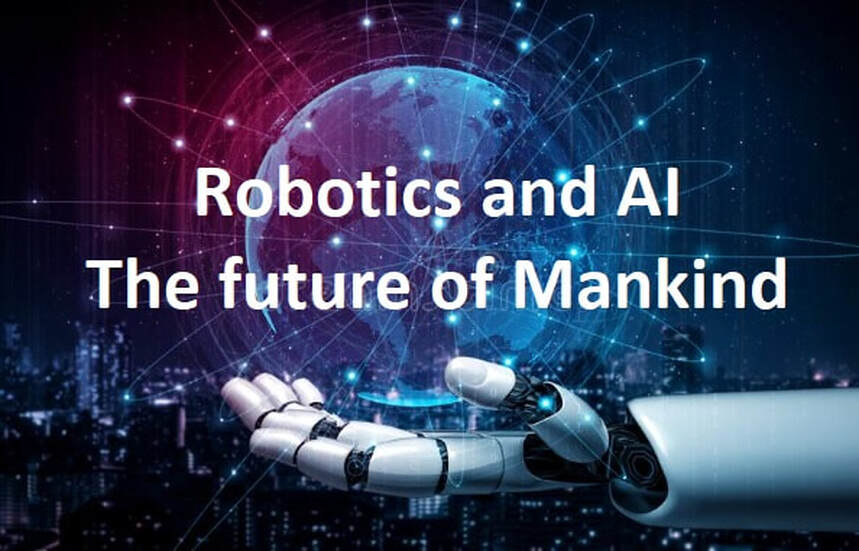

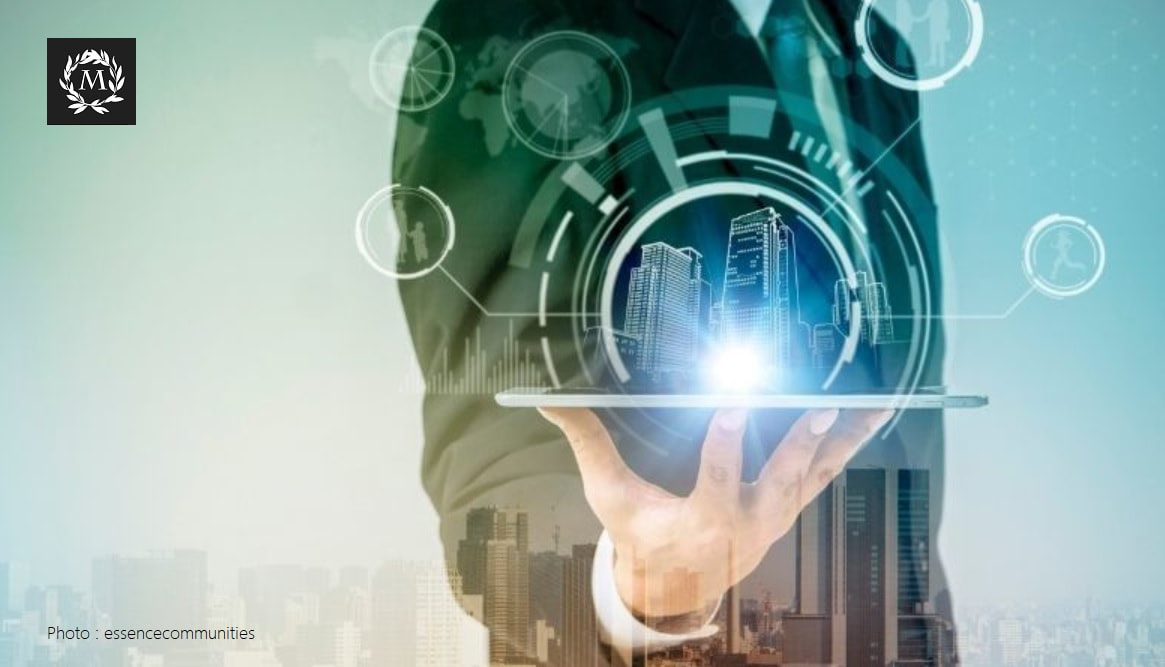
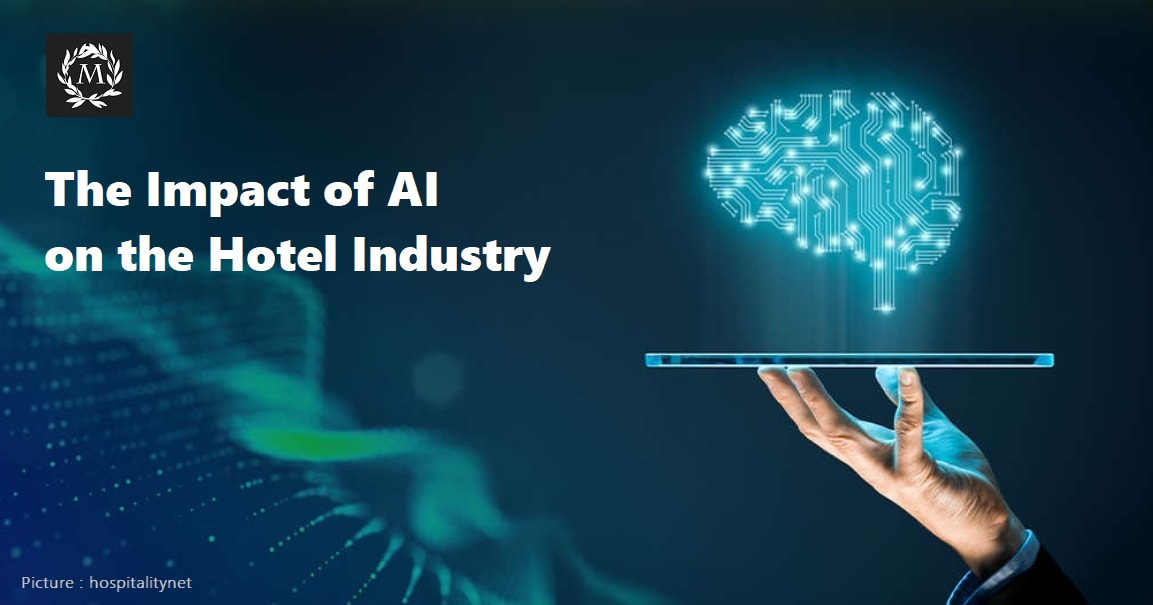
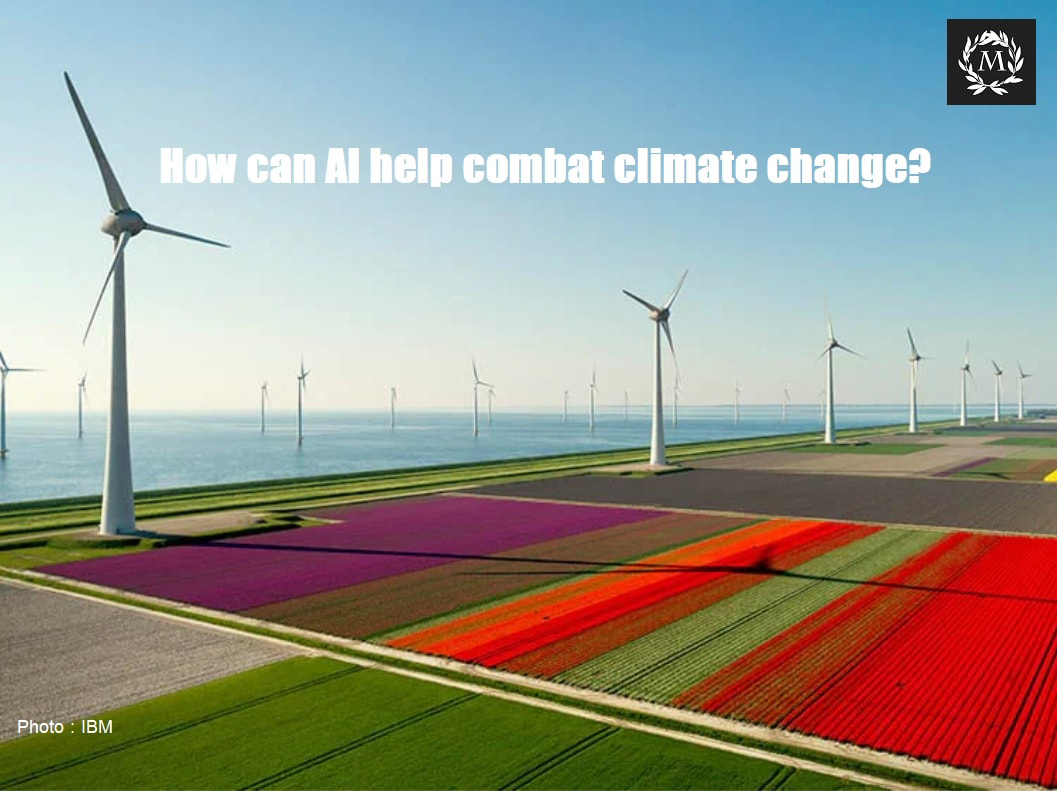

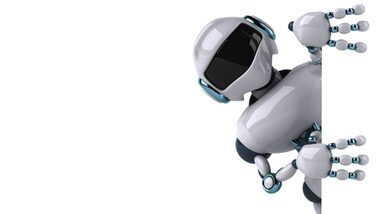
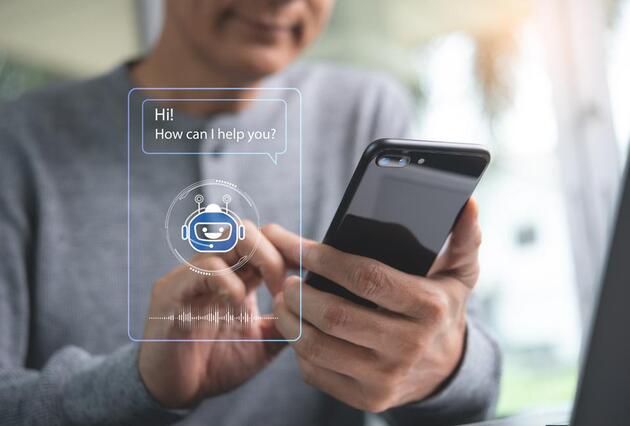
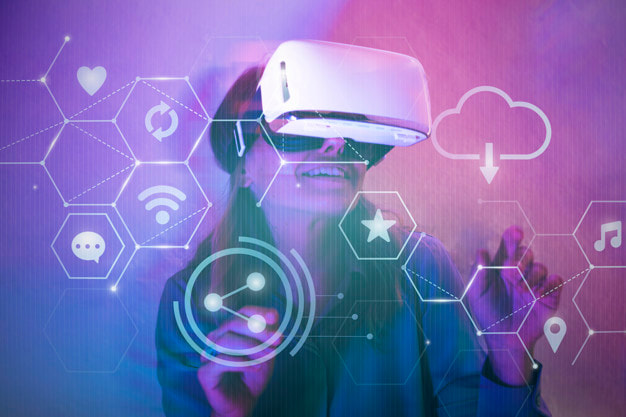
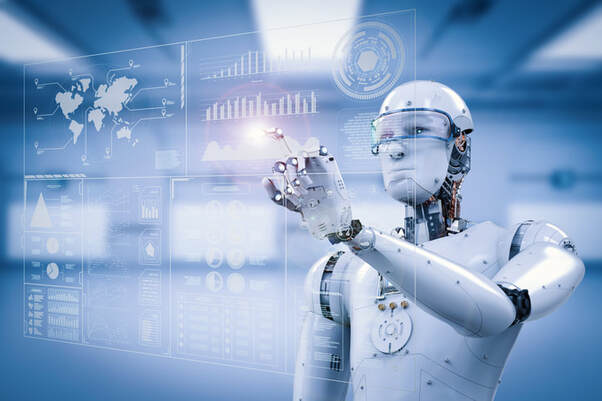

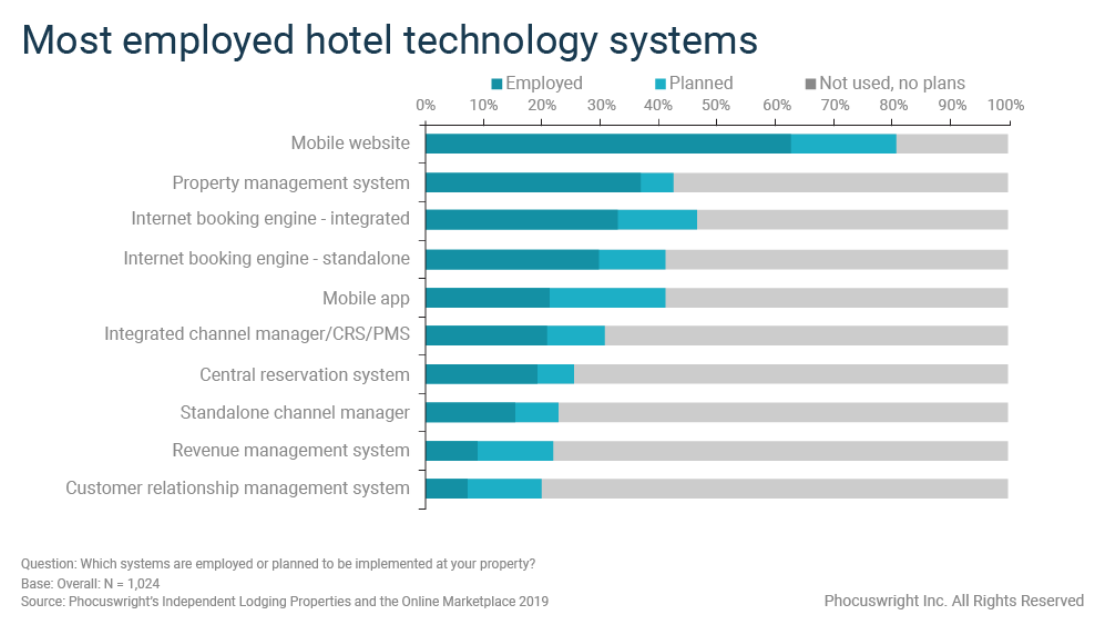
 RSS Feed
RSS Feed
